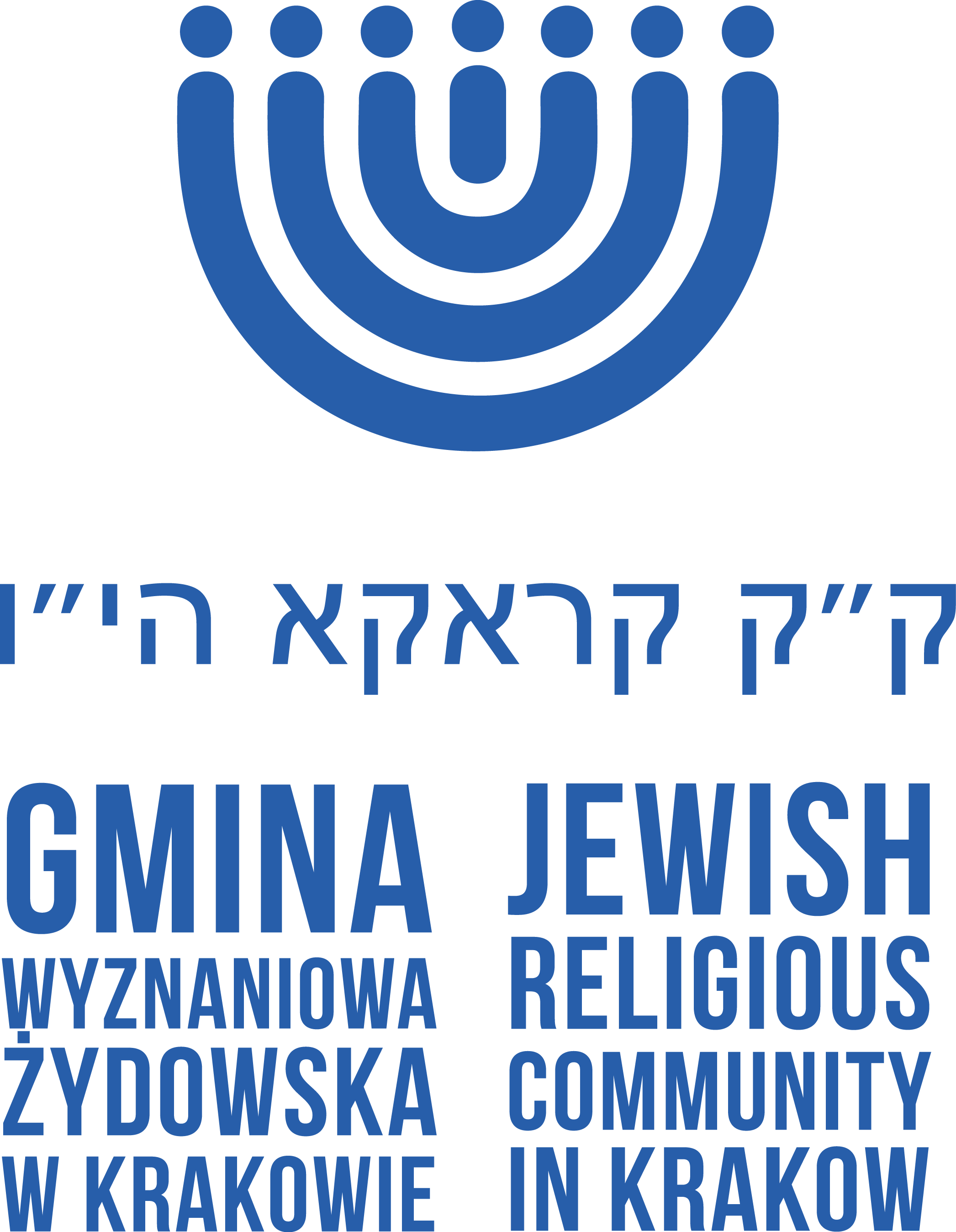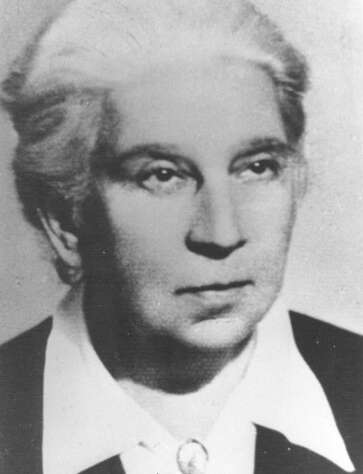BS” D 8 Sivan 5781 Erna Rosenstein was born on 17 May 1913 in Lvov. She was a Jewish painter and poet, who studied at the Vienna Academy for Women (1932-34) and at the Academy of Fine Arts in Kraków (1934-36). She was linked to the Kraków Group, and had a very close artistic friendship with Jonasz Stern. During the Second World War she stayed in the Lvov Ghetto and then hid in Warsaw and Częstochowa. After the war, she worked, among others with Tadeusz Kantor and Jonasz Stern within the Kraków Group. In 1949 she married Artur Sandauer and went to live in Warsaw. After the war she published several poetry books and was a fertile painter. Further information on Wikipedia. Photograph © Jacek Kucharczyk, shown…
BS” D 5 Sivan 5781 Laura Kaufman was born in Kraków on 16 May 1889, the daughter of Bernard. She was a professor of genetics in the agricultural department of the Marie Curie-Skłodowskiej University in Lublin, an excellent biologist and a geneticist, a full member of the Polish Academy of Sciences. On September 1907, the 18-y.o. Kaufman, as one of very few women, started to study in the Jagiellonian University, to which she would be attached for all her life. She died on 9 August 1972. One of her students commented that her death was the ending of an era. She belonged to that generation of Polish scientists, which reconstructed the country after years of oppression. May she rest in peace. (photo from the web-page of the…
BS”D 29 Iyar 5781 Włodzimierz Sztejn (Stein), of blessed memory, son of Naum, was born on 11 May 1913 in Sławuta. Sławuta was a city, in which in 1870 about 65% of the inhabitants were Jewish. Between the two World Wars it was within the USSR, on the border with Poland. During the Second World War the Germans murdered almost all the Jewish inhabitants of Sławuta, and one of the few survivors was Włodzimierz Sztejn. After the German aggression on the USSR on 22 June 1941 he was taken prisoner as a soldier of the Red Army. In order to hide his Jewish origins he destroyed his documents but had to explain his circumcision. He came up with the idea that he could be a Circassian Muslim…
BS”D 28 Iyar 5781 On the 28th of Iyar 5727 (1927) the Arab armies, which had plotted to eradicate the seed of Israel from the land of Israel, were completely decimated. The siege of Israel’s enemies from around her borders was lifted and the Eternal City of Jerusalem was reunited and restored as one city to her natural inheritors. Two days previously, on the 26th of Iyar, the combined armies of Egypt, Syria and Jordan surrounded the borders of Israel and stood poised to attack. Armed from their Soviet allies, they wanted to drive the Jews into the sea. But Providence declared that this was not to be. The army of Israel, even if vastly outnumbered, destroyed the enemy armies and captures vast stretches of territory. On…
BS”D 27 Iyar 5781 The 14th. of May of 1944 saw perhaps the worst German action in Plaszow. Lorries were driven next to the Kinderheim (the foster home for children) and they played a well-known children’s song, called “Mommy give me a horsey” (orig.: Mamatschi schenke mir ein Pferdchen). At that moment the Germans started to amass the children brutally in the lorries. The lorries then left the camp and the Germans murdered the children. Generally that day was regarded as one of the most tragic ones for the whole camp in Plaszow. Less than a year later Germany was defeated and surrendered unconditionally on its knees, the country a mass of ruins. opinions expressed in the text belong solely to the author, and not to the…
BS”D 27 Iyar 5781 Józef Oettinger was born on Tarnow on 7 May 1818. He was a medical doctor, a historian of medicine, and the first Jewish professor of the Jagiellonian University. His parents died when he was 5 and he was taken care of by a Kraków merchant, his uncle Jakub Adler, who lived in Kazimierz. After school, he started to read Philosophy in the Jagiellonian University and two years later he began medicine. In 1843 he was given the title of doctor in Medicine and a year later he began work in Kraków’s Jewish Hospital. During the “Springtime of the Peoples” he took part in the National Committee, created by the Patriots, as a representative of Jewish intellectuals. He believed in the inevitability of working…
BS”D 24 Iyar 5781 Rafał Taubenschlag, son of Bernard Baruch and Cecylia Cyrla née Goldhart was born on 6 May 1881 in Przemyśl. He was a Law Historian, a specialist in Roman Law and Papyrology. He was a professor of the Jagiellonian University as well as of the University of Warsaw and a correspondent member of the Polish Academy of Science (PAS). From 1942 to 1947 Rafał Taubenschlag worked as a visiting research professor of Ancient Civilisation in the Columbia University and was the creator of “The Journal of Juristic Papyrology”. In 1949 he was the recipient of the Barczewski Prize given by the PAS. In 1950 he was awarded a doctorate honoris causa from the University of Warsaw. In 1955 he was elected by acclamation as…
BS”D 22 Iyar 5781 On 4 May 1660 (St. Florian’s day) crowds went in procession from the cathedral to St. Florian’s church. Young academics used the occasion to attach the Jews nearby, beating them bloody and robbing them. A few Jews paid with their life and those who managed hid in the “Lizard house” (ul. Floriańska 6). Unfortunately the students of Kraków hated the Jews. In spite – as Mejer Bałaban wrote – of royal warnings and prohibitions, attacks on the streets and in the cities were happening daily. Dark figures circled the common folk and showed them “written court proclamations” and bands of ruffians in the cities “used made-up excuses … and made-up lists, using soldiers, pilgrims and students killed Jews, robbed their homes and committed…
BS”D 22 Iyar 5781 Mordechaj Gebirtig was born on 4 May 1877 in Kraków, a professional carpenter and by passion a poet, a songwriter and an actor. He was linked to Krakow’s Kazimierz almost all his life. Mordechaj Gebirtig was called the last Jewish popular artist in Poland and the Bertold Brecht of Kazimierz. His creations mirrored the whole complexity of cultural and common life of the Jews in pre-War Poland and above all, in “Kroke”, Kraków. In December 1940 he had to move from Kraków to Łagiewnik. Thus, as a poet, he said goodbye to his beloved city: Goodbye Kraków Be healthy Under my house a car waits already. Here from my town I am chased like a hound. The streets like a desert are found…
Theodor Herzl was born on 2 May 1860 in Pest (Hungary, now Budapest). He was a journalist and the creator and main representative of political Zionism at the time, the founder and the first president of the World Zionist Organisation. He grew up in a rich Hungarian Jewish family. He studied law in the University of Vienna. After university he worked in the Austrian justice system, however with time he devoted himself more and more to literature and to politics. At first, he thought the Jewish Question would be resolved though the mass conversion of Jews and assimilation. The Dreyfus affair represented a turning point in his life. He arrived then at the conclusion that the only solution to the Jewish Question is the general emigration of…







